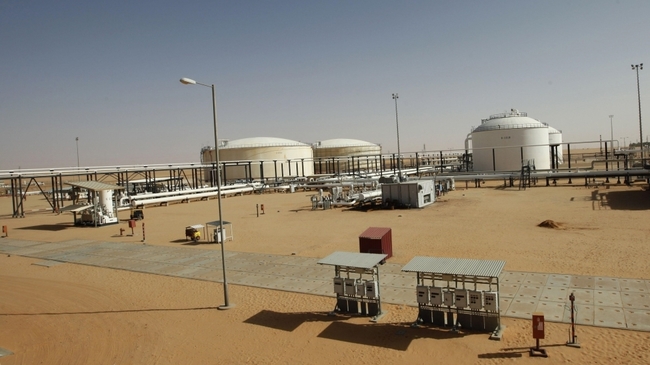Oil prices dropped on Monday as concern over the global economy put crude on track for its biggest monthly fall since mid-2016.
Brent crude oil futures LCOc1 had fallen 58 cents to $77.04 a barrel by 1423 GMT. U.S. crude futures CLc1 were down 63 cents at $66.96 a barrel.
Even with U.S. sanctions on Iranian exports due to come into force in under a week, oil has lost nearly 7 percent in value this month, the largest percentage decline since July 2016.
Industrial commodities such as crude and copper have been rattled by hefty losses in global equities due to concern over corporate earnings, and fears over the impact to economic growth from escalating trade tensions, as well as a stronger dollar.
“It is often said that when stock markets sneeze, commodities catch a cold. This adage was on full display last week as a global rout on equity gauges dragged the energy complex lower,” PVM Oil Associates strategist Stephen Brennock said.
“Adding a further tailwind to the prevailing selling pressures are mounting concerns of a budding oversupply. Saudi Arabia and Russia are leading efforts to keep oil markets well supplied at the same time as the demand outlook darkens … The Iranian factor has been put on the back burner and bullish blood will continue to be spilled in the oil market.”
Fund managers have cut their bullish positions in crude futures and options for four weeks in a row to their lowest since July 2017, as the demand outlook grows more uncertain.
Data from the InterContinental Exchange and the U.S. Commodity Futures Trading Commission shows combined bullish holdings of Brent and U.S. crude futures and options have fallen by a third in four weeks, to around 572 million barrels.
This position was equivalent to nearly 1.2 billion barrels in January.
“I wonder whether the (price) declines here are linked to the underperformance we saw in Chinese stocks overnight on the back of data that showed profits at industrial firms slowed for a fifth month,” OANDA senior market analyst Craig Erlam said.
“The impact of tariffs is gradually showing up in the data and this may be lowering people’s growth outlook for the country and weighing on demand expectations.”
On the supply side, Iran has started selling crude to private companies via a domestic exchange for the first time, the Oil Ministry’s news website reported.
